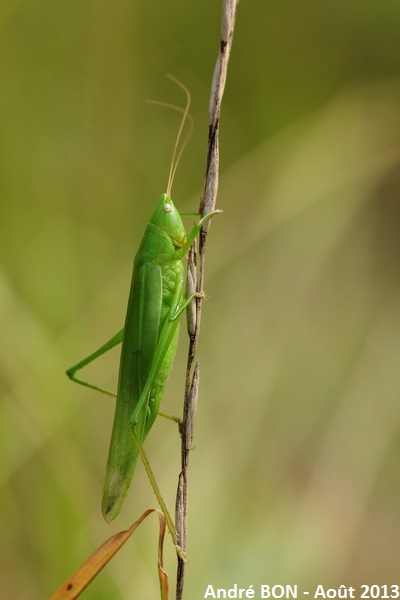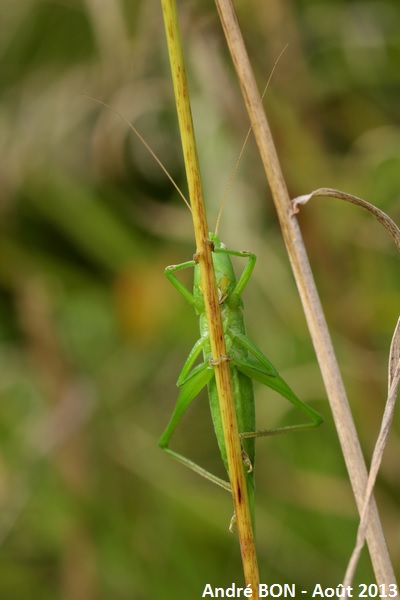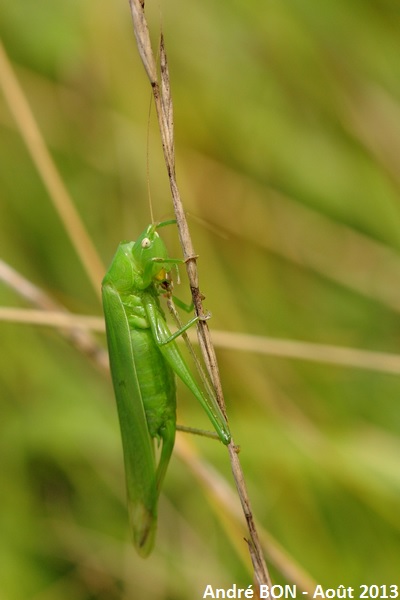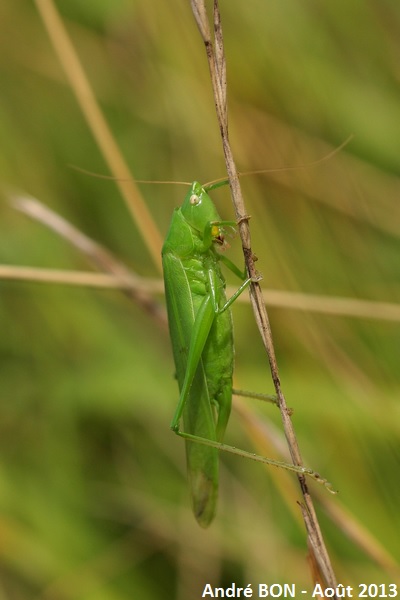



| Large Conehead (Ruspolia nitidula (Scopoli, 1786)) |




|
|
Scientific name: Ruspolia nitidula (Scopoli, 1786) Common name: Large Conehead French name: Conocéphale gracieux, Conocéphale mandibulaire. Order: Orthoptera Family: Conocephalidae Wingspan : 20-29 mm Biotope: High grasses in damp or dry habitat. The Large Conehead is often positioned vertically on one stem or leaf. Geographic area: Mediterranean Europe from Portugal to the Balkans, to Greece and Turkey. In expansion northwards as far as the Vosges and Belgium. North Africa. Observation period : July to October. |
The grasshoppers of the Conocephalidae family are characterized by a conical head with a narrow angle between the face and the top of the head. They have very long antennae and a straight or slightly curved ovipositor. The Large Conehead differs from the Long-winged Conehead (Conocephalus fuscus) and from the Short-winged Conehead (Conocephalus dorsalis) by its significantly larger size and by the lack of a broad brown dorsal stripe. It is a uniform light green colour but you can also find a less frequent pale brown form. The base of the mandibles is yellow. Females' ovipositor is straight and as long as the body. The wings are thin and long and their tip reaches the tip of the ovipositor. The Large Conehead feeds on plants and small animals. |
| [To know more about the Large Conehead] [Next picture] [Top] |

|
Here is one female Large Conehead observed among high grasses in he region of Paris where it is a protected species. |
| [To know more about the Large Conehead] [Next picture] [Previous picture] [Top] |

|
The typical position, that's to say vertical on a stem, allows to try different pictures. |
| [To know more about the Large Conehead] [Next picture] [Previous picture] [Top] |

|
What is this Large Conehead doing by putting the tip of its leg close to the mandibles? Is it just feeding? |
| [To know more about the Large Conehead] [Previous picture] [Top] |

|
You can clearly see the yellow colour of the base of the mandibles on this picture. |